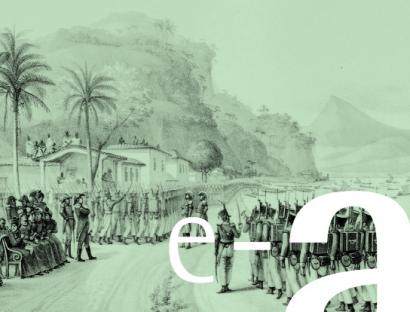The concepts of people and plebs in Brazilian old regime (eighteenth century)
DOI:
https://doi.org/10.11606/issn.1808-8139.v0i11p100-114Keywords:
liberalism, political vocabulary, Portuguese Empire, Enlightenment, political ideasAbstract
Brazil in the eighteenth century witnessed the gradual unbundling of the traditional meanings of the Portugal's Old Regime: 1) the people as the entire Political body participants of an order of mystic stamp whose center is the monarch 2) the people as the "mechanics" or the third state in the society of orders. These meanings are shaken by the conditions of a colonial slave society and the transformations towards modernity that has already occurred, though timidly. In this movement, Illustration and typical forms of contestation of the Portugal's Old Regime become more important, bringing the idea the source of power resides in the people. Moreover, the issue of colonial rabble gets worse, in a way that for many contemporaries the colony does not have a true "people" able to take place in the political system. The identity of the people in colonial territories becomes an increasing problem to be solved or a bet on the future, disrupting the semantic stability of an estate society.Downloads
Download data is not yet available.
Downloads
Published
2010-05-01
Issue
Section
Articles
License
In the Editorial Guidelines, available in the website, readers are informed that all authors transfer to Almanack Braziliense the exclusive rights of reproduction of submitted manuscripts, implying acceptance of all items listed in the “Submission Guidelines” page. Authors are also informed that they are fully responsible for the reproduction rights of the images they provide.
The Journal has no constraints regarding the free reproduction of the texts available in the website, either by printing, photocopying or by any other means of reproduction.



